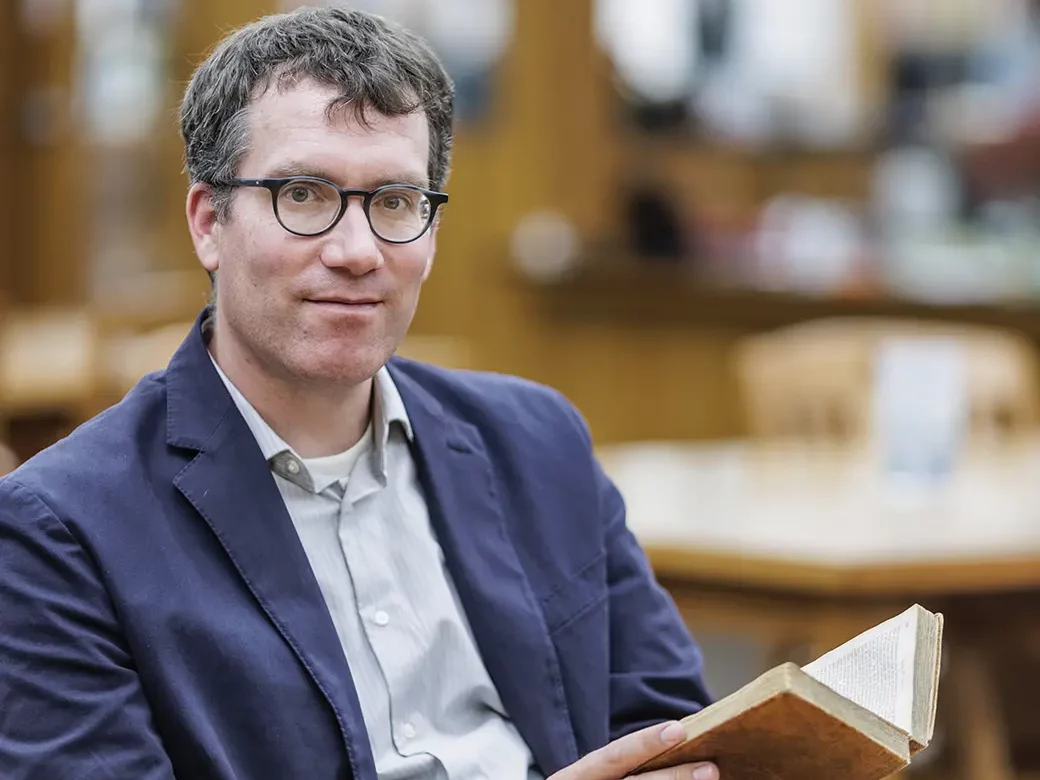BYU ancient-scripture professor Joseph M. Spencer (BA ’04) emphasizes one point at the start of every Book of Mormon course: when we push on the Book of Mormon with our minds as well as our hearts, the book “pushes back—hard.”
That’s a good thing, Spencer says, and we can all benefit from it. Here’s how he recommends people “slow down” and read critically.
Q: Why is critical reading of the Book of Mormon important?
A: One part of scripture study is about wrestling with personal spiritual questions and searching for help and confirmation. But we should also genuinely try to hear a prophet’s words. When we simply read a text looking for a dose of the Spirit, the scriptures may reflect what we already think. But am I hearing Jacob? Am I hearing Alma? Reading more critically can silence our own thoughts so that these prophets can be heard.
Q: Any tips for slowing down?
A: Use dictionaries to see if the words mean what you think they mean. Look for structures. Does the passage have parallels? Does it have repetition?
Re-punctuating the text is also a fun exercise: if you eliminate the punctuation, you have to ask yourself, “Where does this thought end and where does that one begin?”
Come up with 25 questions about one verse. Or find out where that phrase shows up elsewhere in scripture. All of these are ways of slowing down.
Q: How should we approach difficult passages, like Isaiah?
A: The reason such passages feel opaque may be because we’re only asking one question. When we start to feel like we’re wandering through a spiritual desert, we should try to read in a different way.
The trick is figuring out how the text itself poses a question that it’s answering. A lot of that means riddling the text out, coming back to it again and again until we see, “Oh, there’s Alma’s question.” And once we’ve got Alma’s question, we can see how the text is trying to answer. In a lot of ways that’s the hardest part of reading scripture: finding the actual question being asked by the prophets.













